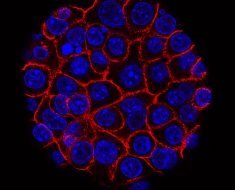(HealthDay)—Personalizing the harm-benefit assessment of low-dose computed tomography (LDCT) screening for lung cancer can inform patient-centered screening decisions, according to a study published online May 29 in the Annals of Internal Medicine.
Tanner J. Caverly, M.D., from the University of Michigan in Ann Arbor, and colleagues examined factors that influence when LDCT screening is patient preference-sensitive using data from two large randomized trials and the Surveillance, Epidemiology, and End Results cancer registry.
In base-case analysis, the researchers found that moderate differences in preferences about the downsides of LDCT screening influenced whether screening was appropriate for eligible persons with annual lung cancer risk <0.3 percent or life expectancy less than 10.5 years. For roughly 50 percent of the study population who were higher-risk eligible persons with longer life expectancy, the benefits of LDCT screening overcame even highly negative views about screening and its downsides. In sensitivity analysis, the researchers noted that rates of false-positive findings and overdiagnosis were not highly influential in determining net benefit and preference sensitivity.
Source: Read Full Article





